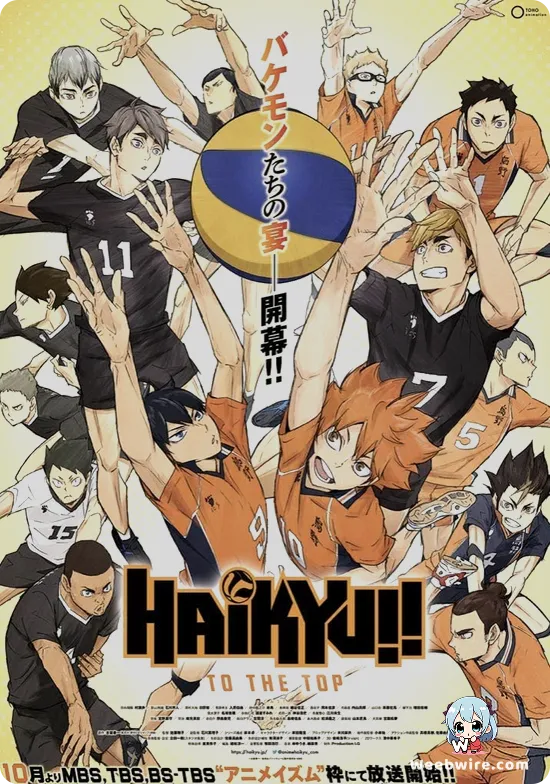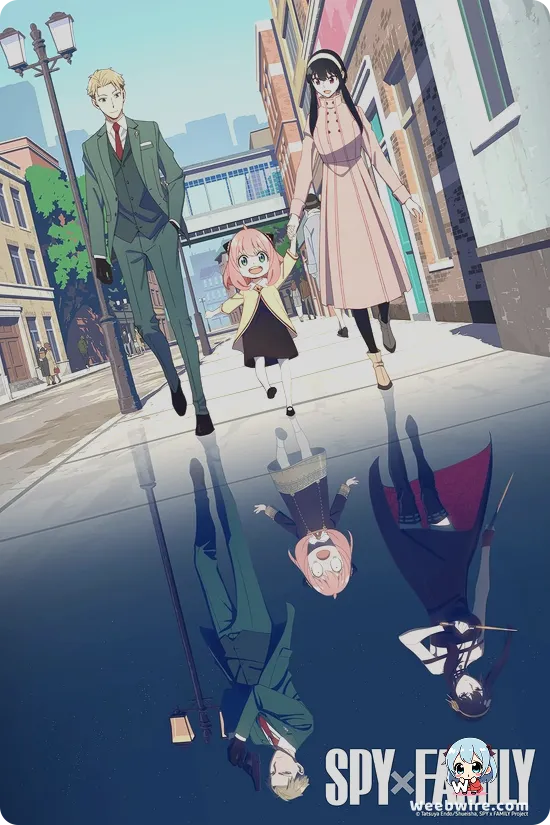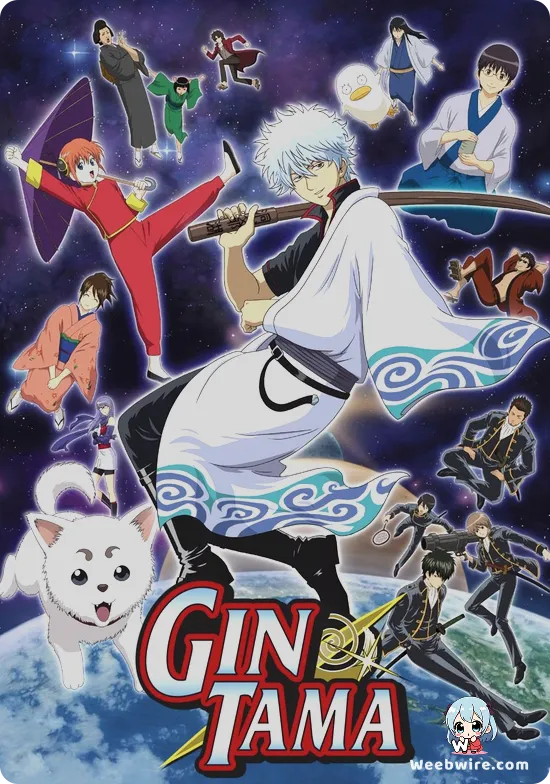'Haganai': A Deep Dive into the Hilarious Misadventures and Poignant Truths of Anime's Unforgettable Neighbors Club
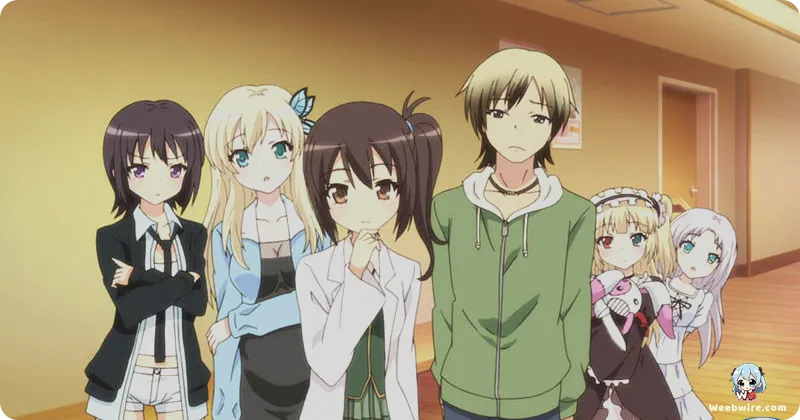
Step into the uniquely awkward and profoundly humorous world of Haganai: I Don't Have Many Friends, also known as Boku wa Tomodachi ga Sukunai, an anime series that masterfully transforms the relatable struggles of social isolation into a comedic tour de force. This acclaimed production cleverly intertwines its light ecchi elements with a deeper, often poignant, exploration of loneliness, revealing the eccentric and endearing ways individuals attempt to forge connections.
At the core of this narrative is the Neighbors Club, founded with the admirable, yet consistently unfulfilled, ambition of teaching its members how to make friends. Far from achieving its goal, the club’s activities hilariously devolve into a series of bizarre and utterly unproductive exercises, from intense dating sim marathons to spirited, yet pointless, debates on anime genres. This perpetual failure is not a narrative flaw but a brilliant comedic device, highlighting the characters' profound social ineptitude and the inherent absurdity of trying to systematize something as nuanced as friendship. Each new club endeavor becomes a guaranteed spectacle of social blunders, delivering consistent laughs.
Kodaka Hasegawa
Leading this dysfunctional ensemble is Kodaka Hasegawa, whose very appearance is a running gag. Despite his genuinely kind nature, Kodaka’s natural blond hair and stern expression lead strangers to mistakenly label him a delinquent. This unfortunate quirk acts as the initial catalyst for his social isolation and, consequently, the birth of the Neighbors Club. It's a clever narrative touchstone, immediately establishing themes of misjudgment and the often-deceptive gap between appearance and reality—a struggle many socially awkward individuals keenly understand. His ongoing battle against preconceived notions from new acquaintances generates both humor and a surprising depth of empathy, rendering him a remarkably relatable protagonist amidst the series' outlandish situations.
Yozora Mikazuki
The club's dynamic is further enlivened by Yozora Mikazuki, co-founder and a fascinating study in 'chuunibyou' (eighth-grade syndrome) and strategic social manipulation. Her dramatic pronouncements, penchant for elaborate (and often cruel) schemes, and self-professed enigmatic persona are more than theatrical flourishes. They stem from a deep-seated insecurity and a fierce desire for control in a world where she feels fundamentally out of place. Her often-contentious relationship with Sena Kashiwazaki, frequently marked by sharp verbal barbs and intricate pranks, serves as a primary comedic engine for the series. Subtly, Yozora's chuunibyou acts as a poignant shield, a coping mechanism for her inability to form genuine connections, particularly following the childhood trauma of losing touch with Kodaka.
Sena Kashiwazaki
Sena Kashiwazaki herself provides another layer of intriguing character development. Blessed with beauty, wealth, and undeniable popularity among boys, she remains utterly clueless when it comes to befriending other girls. Her social ineptitude differs from Yozora’s; Sena’s arrogance and self-absorption often inadvertently alienate potential female friends. Her fervent obsession with dating simulation games, especially those featuring bishōjo characters, offers a hilarious window into her desperate attempts to decipher social dynamics. She earnestly believes these games hold the key to unlocking the secrets of friendship, revealing a charming naivety beneath her haughty exterior. This striking contrast between her outward perfection and her internal struggle for genuine connection makes her a compelling, if occasionally exasperating, character.
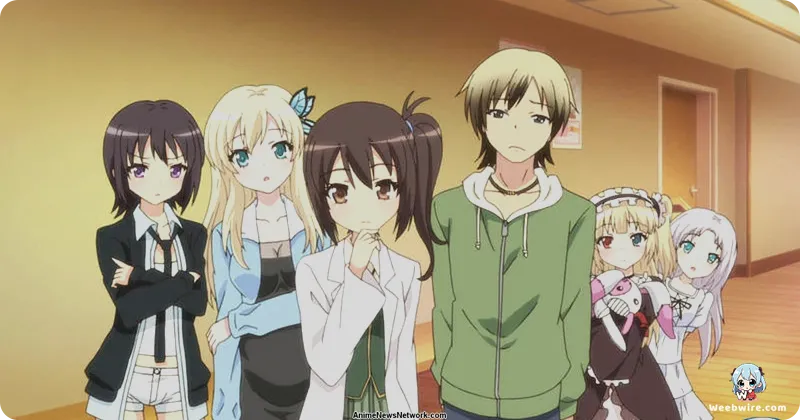
The Supporting Cast
Beyond the central trio, Haganai's vibrant supporting cast contributes an endless stream of comedic brilliance and unique personalities.
Kobato Hasegawa
Take Kobato Hasegawa, Kodaka's younger sister, who fully embraces her gothic lolita persona, convinced she's a vampire from the anime 'Steel Fist.' Her unwavering dedication to this role, complete with dramatic pronouncements and an adorable, yet fiercely possessive, attachment to her 'big brother,' is a constant source of amusement.
Maria Takayama
Similarly, Maria Takayama, the pint-sized nun who improbably serves as the club's advisor, defies all expectations. Her insatiable love for junk food, surprisingly colorful language, and utter disregard for traditional nun-like decorum make her one of the show’s most unpredictable and side-splitting characters. Her tender age of ten years old only amplifies the absurdity of her advisory role within the club.
Rika Shiguma
Another fan favorite, Rika Shiguma, is a genius inventor whose scientific brilliance is rivaled only by her incredibly vivid and often perverse imagination. Her innovative gadgets, frequently intended to assist the club, almost always backfire spectacularly or lead to hilariously compromising situations. Her abrupt transitions from a serious, analytical scientist to a lewd, fan-fiction-obsessed fangirl are a defining characteristic. Rika embodies the extreme end of self-expression within the group, fearlessly vocalizing her most outlandish thoughts, much to the discomfort of her fellow members—and the immense amusement of the audience. Her willingness to boldly experiment, both scientifically and socially, injects an electrifying, unpredictable energy into the ensemble.
Yukimura Kusunoki
Yukimura Kusunoki’s transformative journey throughout the series provides a unique and often heartwarming subplot. Initially believing themselves to be a highly effeminate boy striving for 'manliness' under Yozora’s questionable tutelage, their true gender identity emerges as a significant revelation. While initially played for laughs with Yozora’s bizarre 'manly training' exercises, this storyline subtly delves into themes of self-perception and acceptance. The club members' understated reactions, or rather their lack of significant shock, to this revelation speaks volumes about the deepening, albeit unconventional, bond they share.
Ultimately, Haganai transcends its surface-level comedy and ecchi elements through its surprisingly profound exploration of loneliness. Each character, in their distinct, exaggerated manner, grapples with the inability to connect with others, making the Neighbors Club a compelling microcosm of their individual struggles. The anime, faithfully adapted from Yomi Hirasaka's acclaimed light novel series, skillfully extracts humor from these vulnerabilities, creating a sanctuary where these social outcasts can, paradoxically, discover a sense of belonging through their shared awkwardness. The series wisely refrains from neatly resolving their social dilemmas, offering a refreshingly realistic perspective, and instead focuses on the journey of self-discovery and mutual understanding. This nuanced approach, coupled with Buriki's unforgettable character designs and AIC Build's vibrant animation, has firmly cemented Haganai's legacy as a cherished cult classic among fans of slice-of-life comedies.
The enduring charm of Haganai lies in its remarkable ability to satirize social anxieties while simultaneously validating the experiences of those who struggle with making friends. It serves as a powerful reminder that sometimes, the most authentic connections are not forged through flawless social graces, but through shared imperfections and a mutual understanding of what it truly feels like to be an outsider. The Neighbors Club, in all its endearing dysfunction, teaches us that perhaps, not having an abundance of friends is precisely what makes the few, peculiar connections you do possess all the more invaluable.
Credits
Haganai: I Don't Have Many Friends
Author
Yomi Hirasaka
Cover Art
Buriki
Studio
AIC Build
Publisher
Media Factory
Producers



